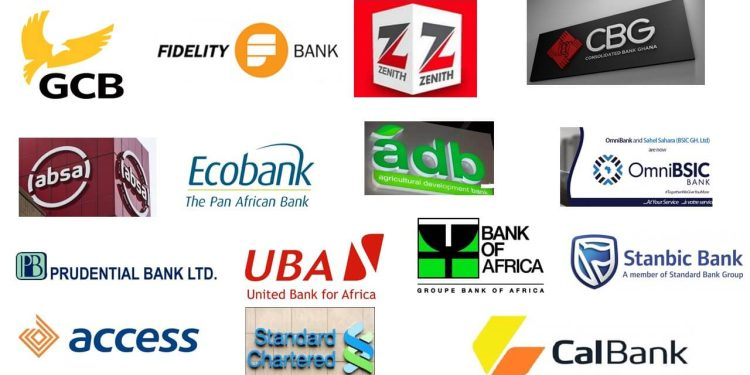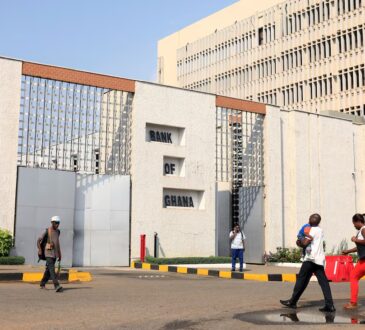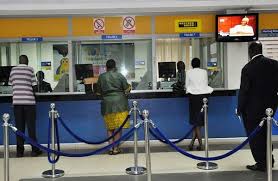
…Commercial banks in quandary amid DDEP
By Samuel Kojo DARKO
A study by the World Bank has revealed that, MSMEs constitute about 90% of all jobs in Ghana, and contributes approximately 40% to the nation’s GDP. Yet, the subsector is the least recipient of financing from the financial institutions in the country, particularly the commercial banks.
A careful study of the balance sheets of commercial banks in 2022 indicates a noticeable contraction of loans and advances to the private sector in general, and far less to the MSME subsector in particular.
The latest Bank of Ghana MPC’s report indicates that, even though loans and advances of banks increased by 30.2% to Ghs70.00 billion in 2022, credit to the private sector in particular (including MSMEs) contracted sharply by 14.5% in real terms, compared to 1.3% contraction in 2021.
The report further states that, the increase in nominal value of banks credit portfolio was attributable to portfolio rebalancing and favorable revaluation effect on foreign currency denominated credits, apparently due to the cedi appreciation in December 2022.
What the above information means is that, financing to the private sector in Ghana (which is hugely dominated by the MSMEs) is progressively under threat and contracting (i.e from 1.3% to 14.5% in 2021 and 2022 respectively). Thus, the private sector (MSMEs) financing gap is ever widening.
The MSME financing gap in Africa is estimated at $421 billion, according to the African Development Bank (AfDB). And in Ghana, the IFC-World Bank estimates that, the MSME financing gap stands at $6.1 billion, equivalent to 13% of the nation’s GDP in 2017. This situation would unfortunately deteriorate in 2022 as indicated above.
Commercial banks in Ghana are in general, deemed as commercially and operationally viable financial institutions that are better placed to finance MSMEs. They have huge stated capital, wider geographical coverage, robust IT infrastructure, sound governance practices, and above all, favorable public confidence.
Yet commercial banks are the least when it comes to MSME credit portfolio as a proportion to their total assets. Several factors are cited to account for this, including, but not limited to, high default rates, poor cashflow records, little interest income for MSME loans, inter alia.
But the above conversation is not even the end of the woes of Ghanian MSMEs. The sector also receives little budget allocation from the government yearly, amid high cost of doing business, inadequate and sometimes inefficient state infrastructure to support their development, limited access to market, inter alia. The scenario looks even more bizarre in the case of MSMEs in the agriculture value chains.
The combined effects of all these, make the MSME subsector incapable, and off-course deficient to grow. Yet, the sector deemed to be the backbone of the economy. What a weird paradox!
Traditionally and unsurprisingly, MSMEs are unable to provide collateral (such as real estate, movable assets, etc.) to obtain credit from the commercial banks. This means, cashflow-based lending model would be the best available option for the banks to lend to them. But, these MSMEs however do not keep proper cashflow records to support cashflow lending model. This means, a new specialized approach is required.
A psychometric approach-which deals with the use of structured questions to infer about the morality and the cashflow situations of the MSME borrower is one most tested approach used by most MFIs globally to disburse credit to the MSMEs. But this comes with its own challenges although.
Indeed, the enormous contributions of MFIs in Ghana in limiting the MSMEs financing gap cannot be overemphasized. However, the MFIs themselves are not without challenges. MFIs face several existential challenges, sometimes even severer than what MSMEs face. These include; liquidity, capital adequacy, profitability and asset quality.
Others are inadequate IT infrastructure, poor governance issues, high cost of funding, high cost of operation, and unfavorable public perception. The commercial banks on the other hand, however, have solutions to all of these. And this put them in a comparatively stronger position to better serve the MSMEs.
The establishment of the new Development Bank of Ghana (DBG) is yet another good step in a right direction, seeking to mobilize long term patient funds and technical assistance for the effective participation of commercial banks in MSME financing space. The DBG has since signed on (4) four commercial banks in Ghana in partnership for this purpose.
To complement this, the Bank of Ghana’s other financial institutions supervision department (OFISD), which is directly responsible for the supervision of MFIs should be strengthened in all might to be able to provide robust supervision for the MFIs. in order. This way MSMEs would receive effective financial solutions for growth. MSMEs deserve robust financial institutions in order to become bigger corporations tomorrow.
But there is yet another looming nemesis! – The Ghana’s domestic debt exchange program (DDEP) and its concomitant effects on the fragile state of MSME financing in the country.
Currently, the government’s treasury bill rates are in the roofs at 35.7%, inflation rate at 53.6% and policy rate at 28%. These rates have stubbornly been erratic in recent times, and would consequently feed into higher lending rates of banks and MFIs. The resultant effect is that, MSMEs borrowings are going to be limited.
At the same time, banks and MFIs are redirecting their loanable funds to otherwise attractive government bills, leaving little for lending purposes. Again, banks that signed up unto the DDEP have their funds locked-up with the government according to the terms and conditions of the program, thereby limiting their financing abilities to the MSMEs. In addition, the MPC report also revealed that, banks are currently experiencing heightened operational and prudential risk, due to the general fall on their key financial soundness indicators.
These developments put the commercial banks into serious quandary, as to whether to increase their lending portfolio to the private sector MSMEs (which are deemed risky) or continue investing into attractive government bills/notes, which are now deem risky-according to some experts.
These notwithstanding, commercial banks are strongly encouraged to redirect funds to the private sector, particularly the MSMEs in a bid to improve their stake in limiting financing gap. This could be done if they adopt similar but enhanced strategies from the MFIs (including psychometric financing). They could further deploy the use of technology in the form of alternative data harvesting for this purpose. Again, partnership with Fintechs and Agri-techs companies aiming at improving financing to the MSMEs is yet another recommended approach. Banks are strongly advised to be measured in their oversubscription to government bills, taking lessons from the bond experience.
Limiting Ghana’s MSME financing gap will require active participations from both commercial banks and MFIs.
The writer is an International Development Finance Consultant (MSMEs)
Email: sasdarko@gmail.com
Tel: +233 549847220
References
- The World Bank (2019)- Improving Access to finance for Ghanaian SMEs: Is there a role for a new development finance institution?
- Bank of Ghana Monetary Policy Committee Press Release, January 30, 2023
- The Budget statement and economic policy of the Government of Ghana for 2023 financial year
- World Finance: https://www.worldfinance.com/markets/can-hybrid-finance-unburden-africas-shaky-sme-sector







